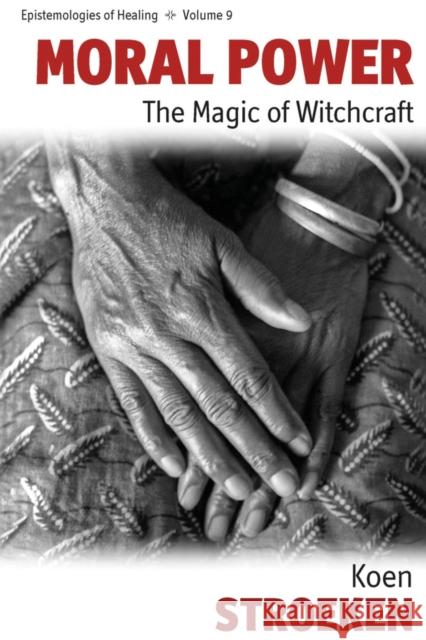Moral Power: The Magic of Witchcraft » książka
Moral Power: The Magic of Witchcraft
ISBN-13: 9780857456595 / Angielski / Miękka / 2012 / 284 str.
Moral Power: The Magic of Witchcraft
ISBN-13: 9780857456595 / Angielski / Miękka / 2012 / 284 str.
(netto: 130,11 VAT: 5%)
Najniższa cena z 30 dni: 135,22
ok. 22 dni roboczych.
Darmowa dostawa!
... Stroeken's]ethnographically-driven but conceptually-powerful book should give anthropologists some pause to re-examine their assumptions and seek unexpected connections. That is, it should cause us the good kind of trouble. Anthropology Review Koen Stroeken's work is fascinating, thought-provoking, theoretically challenging and ethnographically penetrating. It is anthropology, yes, and very true anthropology for that matter, but it is also a deep and unsettling experience finding its voice. Per Brandstrom, Uppsala University The book is thoroughly engaging and a timely contribution to the literature on witchcraft. It may be found too provocative and controversial for some, but I appreciated the analysis as a useful interrogation of the 'certainties' of much anthropological theory and practice in the study of magic and witchcraft. Joanne Thobeka Wreford, University of Capetown Neither power nor morality but both. Moral power is what Sukuma farmers in Tanzania in times of crisis attribute to an unknown figure they call their witch. A universal process is involved, as much bodily as social, which obstructs the patient's recovery. Healers turn the table on the witch through rituals showing that the community and the ancestral spirits side with the victim. In contrast to biomedicine, their magic and divination introduce moral values that assess the state of the system and that remove the obstacles to what is taken as key: self-healing. The implied 'sensory shifts' and therapeutic effectiveness have largely eluded the literature on witchcraft. This book shows how to comprehend culture other than through the prism of identity politics. It offers a framework to comprehend the rise of witch killings and human sacrifice, just as ritual initiation disappears. Koen Stroeken is an associate professor of Africanist anthropology at Ghent University. He studies the moral cosmologies underlying medicine and social media.
...[Stroekens]ethnographically-driven but conceptually-powerful book should give anthropologists some pause to re-examine their assumptions and seek unexpected connections. That is, it should cause us the good kind of trouble. Anthropology Review
Koen Stroekens work is fascinating, thought-provoking, theoretically challenging and ethnographically penetrating. It is anthropology, yes, and very true anthropology for that matter, but it is also a deep and unsettling experience finding its voice. Per Brandström, Uppsala University
The book is thoroughly engaging and a timely contribution to the literature on witchcraft. It may be found too provocative and controversial for some, but I appreciated the analysis as a useful interrogation of the certainties of much anthropological theory and practice in the study of magic and witchcraft. Joanne Thobeka Wreford, University of Capetown
Neither power nor morality but both. Moral power is what Sukuma farmers in Tanzania in times of crisis attribute to an unknown figure they call their witch. A universal process is involved, as much bodily as social, which obstructs the patients recovery. Healers turn the table on the witch throughrituals showing that the community and the ancestral spirits side with the victim. In contrast to biomedicine, their magic and divination introduce moral values that assess the state of the system and that remove the obstacles to what is taken as key: self-healing. The implied sensory shifts and therapeutic effectiveness have largely eluded the literature on witchcraft. This book shows how to comprehend culture other than through the prism of identity politics. It offers a framework to comprehend the rise of witch killings and human sacrifice, just as ritual initiation disappears.
Koen Stroeken is an associate professor of Africanist anthropology at Ghent University. He studies the moral cosmologies underlying medicine and social media.











